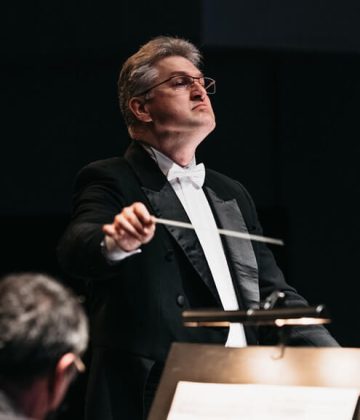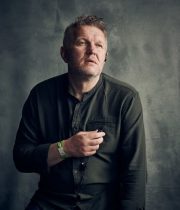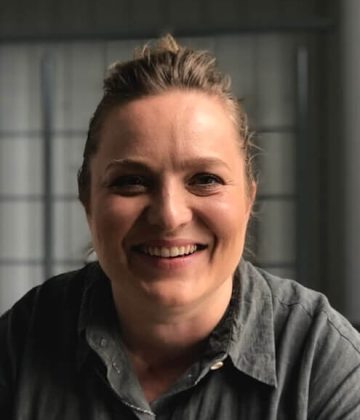Carmina Burana
A videographic performance after the eponymous scenic cantata by Carl Orff
Carmina Burana, a cantata written by 20th-century German composer Carl Orff, is one of the world’s most impressive musical masterpieces. The work is based on twenty-four poems from the 11th–13th centuries in Latin and Middle High German from the Codex Buranus, a manuscript discovered in 1803 in the monastery of Benediktbeuern, Germany. Perhaps the best-known movement of the cantata is the chorus ‘O Fortuna’ that opens and closes the work. The cantata’s texts touch on many themes that have not yet lost their importance: the impermanence of fortune and wealth, the fast flow of life, the joy of the returning spring and the fleeting pleasures of drunkenness, gluttony, gambling, and carnal love. Orff’s expressive, frenzied, at times lyrical and lustful music goes beyond intellectual thought and connects intuitively with the listener’s heart and gut. The magic of this music is simply impossible to resist.
The premiere of the stage cantata Carmina Burana took place at the Frankfurt Opera in 1937. The work is scored for a large and unusual orchestra (with two pianos and an expanded percussion section), double mixed and children’s choirs, and three soloists. In the cantata, the composer seems to play with movement, sound, dance, song and visual imagery. Orff’s aim was to create a combined effect on the viewer. Carmina Burana has received numerous interpretations to date and has been played, sung, performed and danced on every continent of the world.
The performance of this famous cantata replaced the production of Wagner’s opera The Flying Dutchman, which has been delighting audiences of the Klaipėda Festival for several years since its premiere in 2020. Perhaps the most famous movement of the cantata, the menacing chorus “O Fortuna,” which opens and closes the work, became the triumphant salute to the 100th anniversary of the annexation of Klaipėda Region to Lithuania in 2023. Director Dalius Abaris described his new production for the Klaipėda Festival as a videographic performance. According to him, the audience should be overwhelmed by the entirety of the performance: “Orff’s dynamic and spectacular music, huge constructions of the old shipyard, the large number of performers including the choir singers, orchestra musicians, the soloists and the dancers – this alone would be enough to make Carmina Burana impressive. Together with talented crew comprised of stage designer Sigita Šimkūnaitė, costume designer Sandra Straukaitė, videoartist Martynas Norvaišas and lighting designer Andrius Stasiulis we will try to control the whole and wrap it up in an all-embracing garment.” In this videographic performance, which is mounted at the Klaipėda shiplift, one of the most important characters is today’s society – from the richest to the poorest. The principles of sustainable design have been applied to the production’s set and costumes.
AWARDS
Catch the Wave (26/03/2024, Klaipėda) to the Deputy General Manager for Artistic Affairs Audronė Juozauskaitė, Productions Department and Production, Event and Tour Management Unit for the optimisation of internal and external resources, excellent orientation in scouting European soloists, masterful management of technologies and innovations at the location of the historic shipyard (Challenge of the Year); to Rita Petrauskaitė for solo part (Best Female Opera Soloist of the Year 2023)








Carl Orff (1895–1982)
CARMINA BURANA
Cantiones profanae cantoribus et choris cantandae comitantibus instrumentis atque imaginibus magicis | Songs of Beuern: Secular songs for singers and choruses to be sung together with instruments and magical images (1936)
Prologue
Fortuna Imperatrix Mundi | Fortune, Empress of the World
1. O Fortuna | O Fortune (chorus)
2. Fortune plango vulnera | I bemoan the wounds of Fortune (chorus)
Part I: PRIMO VERE | SPRING
3. Veris leta facies | The merry face of spring (small chorus)
4. Omnia Sol temperat | The sun warms everything (baritone solo)
5. Ecce gratum | Behold, the pleasant spring (chorus)
Uf dem anger | On the Green
6. Tanz | Dance (orchestra)
7. Floret silva | The noble woods are burgeoning (chorus, small chorus)
8. Chramer, gip di varve mir | Shopkeeper, give me colour (chorus, small chorus)
9. Reie | Round dance (chorus, small chorus)
10. Were diu werlt alle min | If all the world were mine (chorus)
Part II: IN TABERNA | IN THE TAVERN
11. Estuans interius | Burning inside (baritone solo)
12. Olim lacus colueram | Once I lived on lakes (tenor solo, male chorus)
13. Ego sum abbas | I am the abbot (baritone solo, male chorus)
14. In taberna quando sumus | When we are in the tavern (male chorus)
Part III: COUR D’AMOURS | THE COURT OF LOVE
15. Amor volat undique | Cupid flies everywhere (soprano solo, female chorus)
16. Dies, nox et omnia | Day, night, and everything (baritone solo)
17. Stetit puella | A girl stood (soprano solo)
18. Circa mea pectora | In my heart (baritone solo, chorus)
19. Si puer cum puellula | If a boy with a girl (baritone, male chorus)
20. Veni, veni, venias | Come, come, o come (double chorus)
21. In trutina | In the balance (soprano solo)
22. Tempus est iocundum | This is the joyful time (soprano, baritone, female chorus)
23. Dulcissime | Sweetest one (soprano solo)
Blanziflor et Helena | Blanchefleur and Helen
24. Ave formosissima | Hail, most beautiful one (chorus)
Epilogue
Fortuna Imperatrix Mundi | Fortune Empress of the World
25. O Fortuna | O Fortune (chorus)
